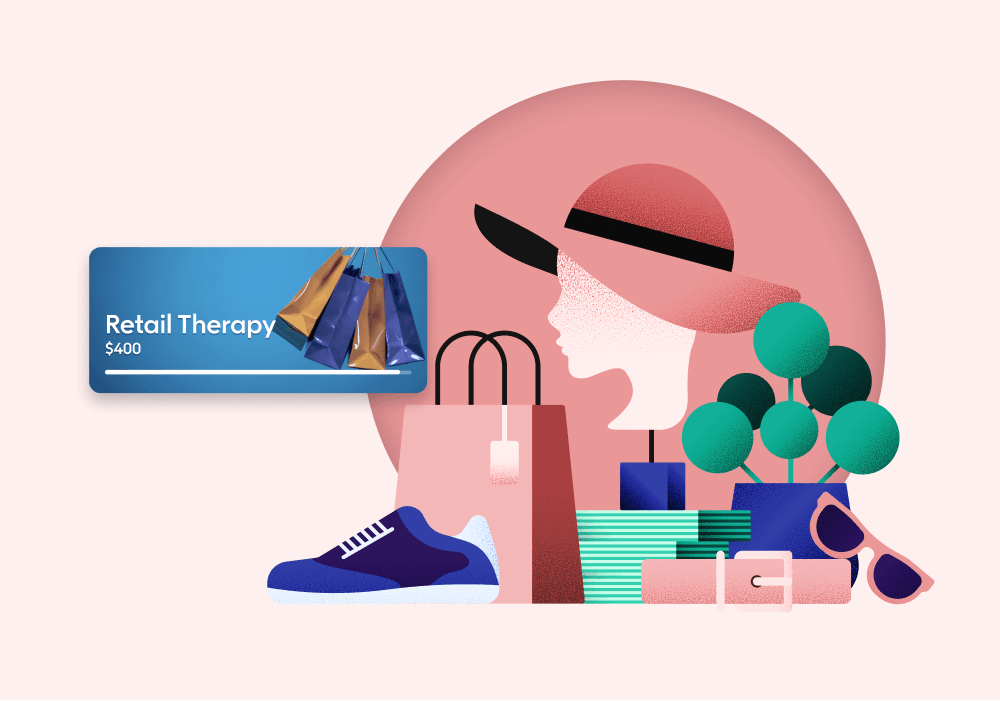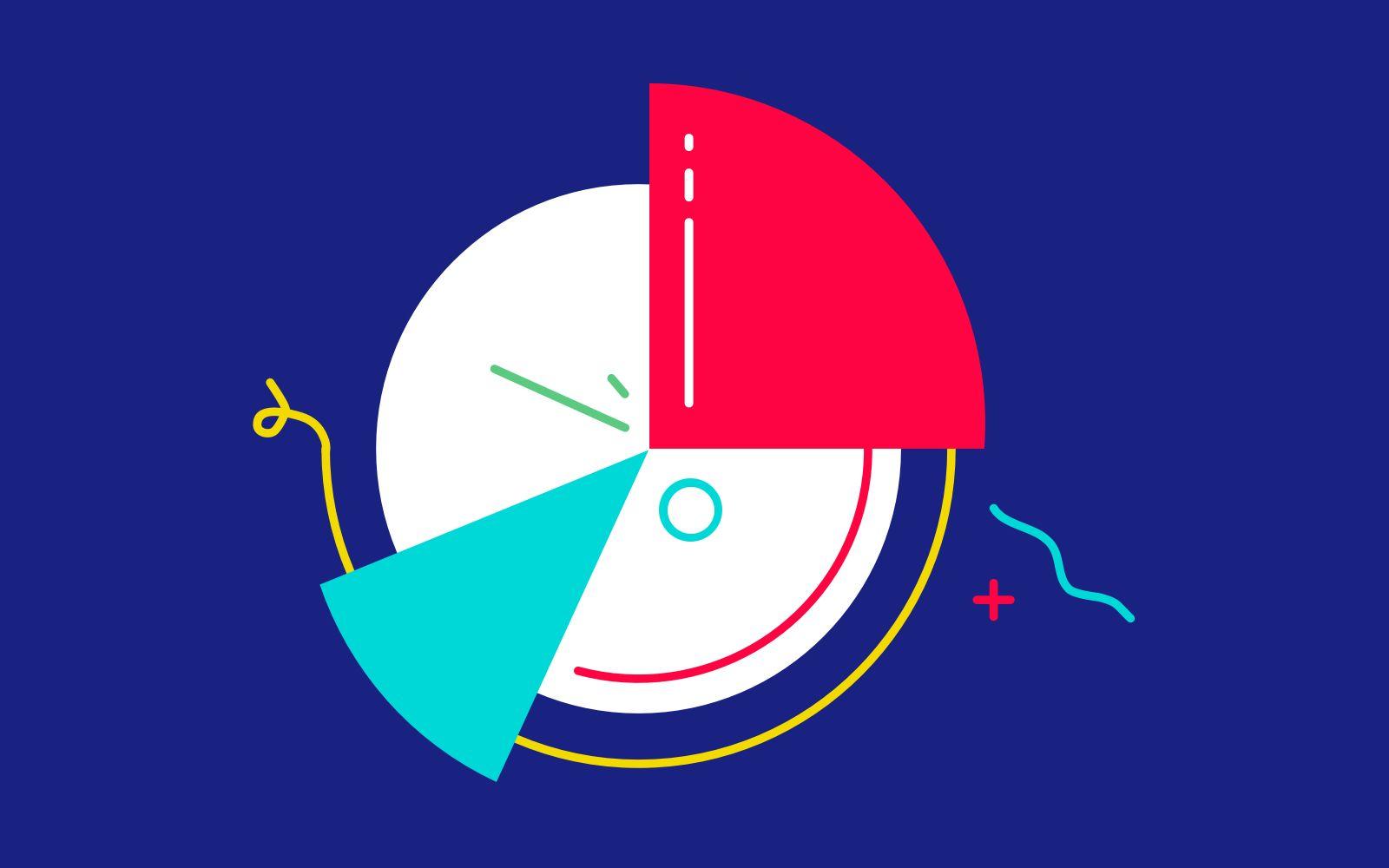Shopping can be a fun way to boost your mood and shake things up when you have an extra bit of cash to spare.
“Retail therapy” – while not a scientifically proven form of therapy – is a common way that we look to improve our moods. Nearly half of Americans said they engaged in some feel-good shopping during the pandemic. ¹
Here are some do’s and don’ts to make sure that you get the most out of your “fun money” without breaking the bank – or your emotions.
DO have a wishlist
Anticipation is half the fun. Research shows that longing for something can make the payoff feel sweeter, so knowing what you’re looking for in advance helps to maximize your chances of finding something you love while enjoying the entire process. Create a Goal on Qapital, let yourself daydream about it, and feel free to be precise and picky about what you’re looking for.
DON’T buy without a price comparison
It always hurts to find out that you left money on the table, and with the power of smartphones, it’s easier than ever to make sure you’re getting the best deal. If you’re buying in-store, try a quick online search to see if another shop has it cheaper. Asking if the physical shop does price matches could save a few dollars, too.
DO set a budget before shopping
Splurging can be fun, but being in debt usually isn’t. Overspending is the biggest killer of retail therapy, and it’s tough to know whether you’re overspending if you don’t have a budget in the first place. You might feel a luxurious rush from walking home with a huge haul, but you’ll most likely feel more anxiety or regret if that spree racks up interest bills on your credit card or forces you to forgo fun nights out in the future. Know your limit before you head out.
DON’T buy things that you don’t need
It might seem like a good idea at the time to go outside the box and take a chance on something unusual, but when the temptation strikes, think of the last time you felt similarly while buying a luxury. Did you use it? Snagging something you don’t need is a fast route to buyer's remorse, which is a sure-fire way to spoil the shopping treat.
DO try shopping with a friend
Having a supportive, honest friend shopping with you will often lead to a better experience. Not only will they nudge you to buy that piece you won’t stop talking about, but they’ll probably be a better sounding board to catch you before you buy an outrageously expensive, sequin top. The conversation and company will turn the shopping into a social experience – a researched-backed way to double up on your happiness boost.²
DON’T buy it all in one session
Avoid the temptation to react to “Buy now!” signs and sales countdowns on websites – these are all scientifically proven tactics that retailers use to make buyers feel urgency and spend impulsively. Taking a beat will help you to decide if you really want something, and delaying the gratification until you’re sure will only make the payoff sweeter when you do. Plus, some retailers will even send you a discount code or coupon when they see that you’ve left your cart without buying!
DO consider experiences
Many studies have shown that experiences can make us happier than possessions. The happiness rush that we get from buying an item tends to fade quickly as it becomes part of our normal lives. On the other hand, experiences create memories that we can always revisit. Plus, if we do them with a friend, then experiences can deepen friendships and social connections that are proven to be an important factor in living a long, happy, healthy life.
DON’T turn it into a habit
Unfortunately, just like any other habit-forming activity, shopping can become dangerous when done to excess. One in twenty Americans suffer from a shopping addiction.³ If you notice that shopping becomes your primary way of coping when you feel sad, then it’s worth reflecting on your habits (and your bank statements) to see if you’re truly in control.
DO find other ways to feel the rush
Retail therapy can be a lighthearted mood-booster, but it shouldn’t be your only therapy! Sometimes we think we crave possessions when what we really want is novelty. Try heading to a new park, taking a new route home from work, or changing up your exercise routine. You might not need to spend to get the same feeling!
DON’T be afraid of going home empty-handed
Sometimes, the act of simply looking can be just as enjoyable as actually making a purchase. Going to see what new styles are in fashion for the season is still worthwhile. Plus, if you don’t spend any money on this shopping trip, then you can put that cash towards something in the future. There’s always the next trip!
Qapital, LLC is not a bank; banking services provided by Lincoln Savings Bank, Member FDIC, and other partner banks. Advisory services provided by Qapital Invest, LLC, an SEC-registered investment advisor. The information provided herein is for informational and general educational purposes only and is not investment or financial advice. Copyright © 2022 Qapital, LLC - All rights reserved.
[1] McCann, Adam. “Coronavirus Shopping Survey.” WalletHub, 29 Apr. 2020
[2] Ortiz-Ospina, Esteban. “Are We Happier When We Spend More Time with Others?” Our World in Data, 17 July 2019
[3] Connect to Care Staff, WebMD. “Addicted to Shopping: 7 Signs You May Have a Problem.” WebMD, WebMD
Share


